How 9-1-1 Dispatchers can Combat Metabolic Syndrome
- Ryan Dedmon

- Aug 14, 2021
- 3 min read
Updated: Aug 29, 2021
By
911 Training Institute
So, you are a 9-1-1 dispatcher and your blood pressure is high? 140/90 or higher is referred to as hypertension. This is most likely the result of chronic stress response - chronic adrenaline and cortisol. It can also be one of the components of Metabolic Syndrome.
What is Metabolic Syndrome you may ask?

According to Mayo Clinic (2021), Metabolic Syndrome is a cluster of conditions that occur together, increasing your risk of heart disease, stroke, and type 2 diabetes. These conditions include increased blood pressure, high blood sugar, excess body fat around the waist, and abnormal cholesterol or triglyceride levels. Metabolic Syndrome is becoming very common, and up to 1/3 of adults may be diagnosed with the syndrome (Mayo, 2021).
What can you do?
Hypertension is just one aspect so please do not self-diagnosis yourself. However, you can
lessen the impact of this syndrome with lifestyle changes to delay, or even prevent, the onset.
Yes, you guessed it.. some self-care and healthy life choices. You are correct, they are also
similar strategies to assist in managing high blood pressure (hypertension):
Physical movement (at least 30 minutes a day) is even better if it is outside with nature, also called green exercise.
Eat plenty of fresh fruits and vegetables as well as lean protein and whole grains... AKA: a healthy diet.
Maintain a healthy weight.
Limit saturated fats and sodium (salt) in your diet.
Limit alcohol.
Get enough sleep daily! 7-8 hours is recommended.
If you only start with one of the above, exercise will have the greatest impact. Regular exercise can help to reduce weight, lower blood pressure, and impact your mental health. Exercise should be 30 minutes a day with moderate intensity. Physical activity as an intervention has a favorable impact on metabolic disease and the burden it places on you. Incorporating regular exercise will go a long way toward reducing the adverse effects of
Metabolic Syndrome (Meyers et al., 2019). Exercise can be aerobic, isometric, or resistance
training, or a combination. Any exercise program can improve your risk factors for Metabolic Syndrome.
Just a few more thoughts that need to be stressed.
Sleep: a shorten sleep duration (less than 6 hours) has been associated with a higher risk of metabolic syndrome (Meyer et al, 2019).
Insulin Resistance: type 2 diabetes, is also a part of this syndrome. When you exercise (muscle contractions) will increase the uptake (or utilization) of glucose in the bloodstream and encourages insulin sensitivity (as opposed to insulin resistance).
Healthy diet: eating a healthy diet that limits saturated fats and sodium, as well as includes
plenty of vegetables and fruit, will help you maintain a healthy weight.
There are ways to manage your stress level and prevent the impact it will have on your health. First, seek appropriate treatment from your healthcare provider. Hypertension and/or Metabolic Syndrome is not a minor problem and can lead to much more serious health problems... stroke, heart attack, and kidney disease to name a few. Second, continue to monitor your blood pressure and seek ways to reduce the impact of chronic stress on your health, along with the other interventions your provider will suggest.
Here are just a few ways to decrease your stress levels:
Identify your stressors.
Know what drains your energy.
Identify ways to recharge your battery. Read our previous article: Dispatchers Must Find a Happy Place for Emotional Survival.
Discuss your feelings and emotions with those you trust instead of ignoring them.
Get some green exercise – be with nature, take in your surroundings.
Why should you try to implement these strategies?
To prosper, continue to grow, and be healthy. To live your best life! But here is another reason why... to prevent Metabolic Syndrome.
Final words:
Management of high blood pressure (hypertension) is a key intervention to avoiding Metabolic
Syndrome and further damage to your body. Follow up with your healthcare provider as
needed. There is only one YOU and YOU are deserving of the same care you provide to others.
Self-care is not selfish! Be your best and live your best life. Survive & Thrive!
Work Cited and Suggested Reading
Katsimardou, A., Konstantinos, I., Konstantinos, S., Sachinidis, A., Doumas, D., Athyros, V.
(2020). Hypertension in Metabolic Syndrome: Novel insights. Current Hypertension Reviews.
16(1). Retrieved July 2021. https://doi.org/10.2174/15734021156661904151611813
Lilly, M.M., London M. J., Mercer, M.C. (2006). Predicator of Obesity and Physical Health
Complaints Among 9-1-1 Telecommunicators. Retrieved July 22, 2021,
Marshall,J., & Laorenza, T. (Eds.). (2018). The Resilient 9-1-1 Professional: A Comprehensive Guide to Surviving & Thriving Together in the 9-1-1 Center. Petoskey, MI: South of Heaven Press.
Mayo Clinic, (2021). Metabolic Syndrome. retrieved July 22, 2021, from https://www.mayoclinic.org/diseases-conditions/metabolic-syndrome/symptoms-causes/syc-20351916.
McGonigal, K. (2021) The Joy of Movement. Penguin Random House LLC. New York.
Meyers, J., Kokinos, S. P., Nyelin, E., (2019). Physical Activity, Cardiorespiratory Fitness, and
Metabolic Syndrome. Nutrients, 11, 1652





Comments